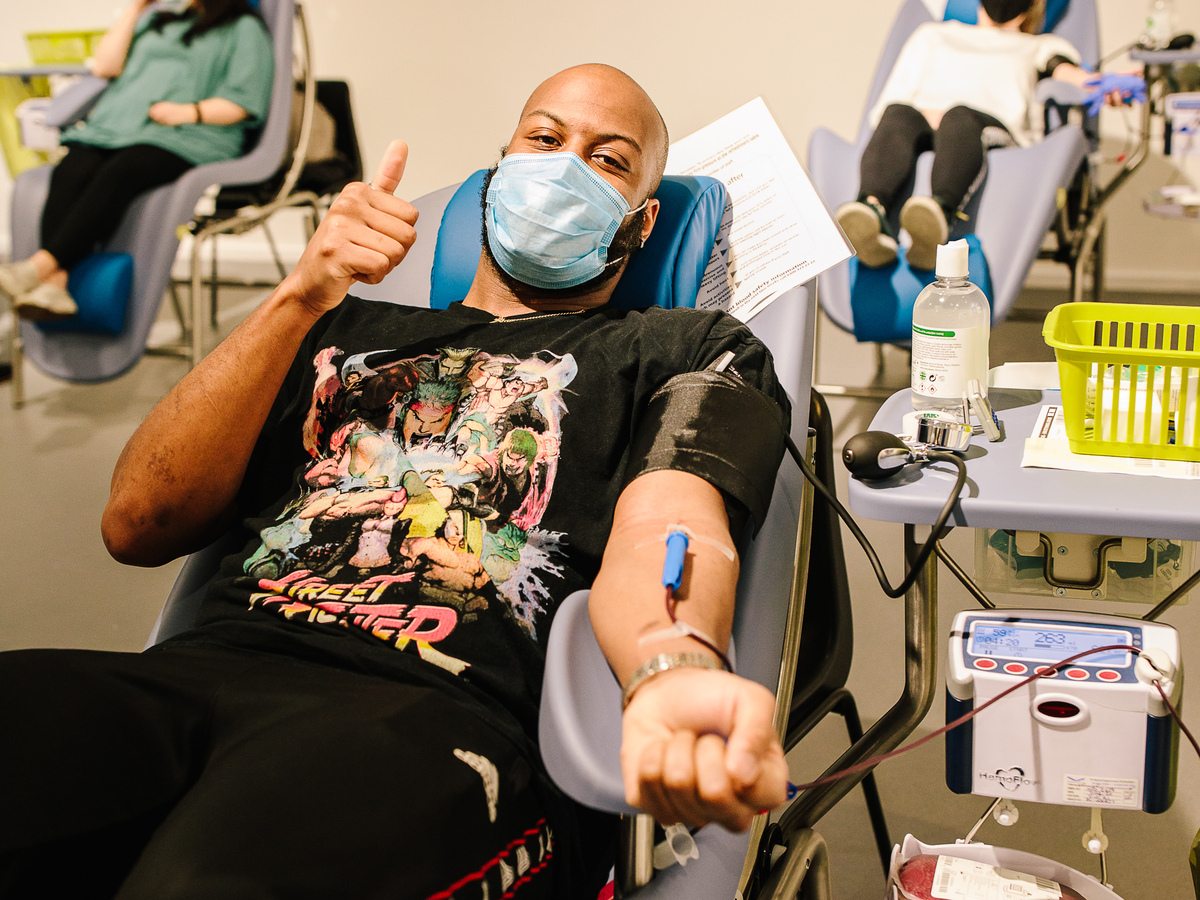Biggest ever blood donor recruitment drive launched to help NHS recover
Hospitals in England were kept in good supply with blood during the pandemic by the smallest pool of donors in the 21st century, NHS Blood and Transplant has revealed, as a new campaign is launched to celebrate their amazing efforts and encourage new donors to join the club to aid the NHS recovery.
Around three quarters of a million people in England donated blood during the height of the pandemic – almost 40,000 fewer regular donors than the year before*.
The need for new donors
Until recently the NHS intentionally relied on existing donors to fill the majority of appointments throughout the pandemic because they are far more likely to make a successful donation – a vital measure to make every donation count while social distancing reduced available chair space. This meant fewer appointments were available for new donors. Alongside the natural lifecycle of blood donors retiring every day, this led to the community of active donors shrinking last year to its lowest level since 1996.
 Now, as life returns to normal and with fewer people donating regularly, the NHS needs new blood donors to play a crucial role in its recovery. An unprecedented 100,000** new donors are needed to register and donate blood by spring to achieve the largest ever annual recruitment drive and join the amazing 67,000 new donors who have already joined the club this year.
Now, as life returns to normal and with fewer people donating regularly, the NHS needs new blood donors to play a crucial role in its recovery. An unprecedented 100,000** new donors are needed to register and donate blood by spring to achieve the largest ever annual recruitment drive and join the amazing 67,000 new donors who have already joined the club this year.
There is a particular need to recruit more Black donors to help treat patients with sickle cell disorder, which is the fastest growing genetic blood condition in the UK and mostly affects Black people where ethnically matched blood is critical for treatment. Also needed are new donors with O negative blood, which is the universal type and is often used for medical emergencies – 45% of new donors are likely to have O positive or O negative blood.
These new donors will fill the gaps left by those who retired from giving blood during the pandemic – which can be due to a number of reasons including health, change of lifestyle or simply not wanting to continue to donate – to help meet a return to normal demand for blood and will future proof the overall size and blood-type mix of donors to sustain services.
Demand for blood dropped by 27 percent at the start of the pandemic as hospitals reduced elective care. As a result, collections were adjusted and reduced by 21 percent. This ensured that blood stocks remain above the six day target throughout. Demand for blood is now back at pre-pandemic levels and may increase in the coming months as hospitals continue to catch up on delayed activity.
New #ThisIsAmazing campaign launches
A new campaign (This Is Amazing - NHS Blood Donation) launched by the NHS today will run for six weeks and include TV adverts and support from businesses and influencers to celebrate blood donors and their lifesaving role during the pandemic, urging others to join the club of dedicated and amazing donors.
Secretary of State for Health and Social Care Sajid Javid said: “The amazing efforts of donors kept the NHS supplied with blood over the pandemic. Now, as the NHS tackles the backlog, we need even more people to join those donors and give blood.
“This new campaign will help raise awareness, especially among black communities where there is a particular need for donors.
“I urge everyone who can to sign up now and give the lifesaving gift of a blood donation.”
Helen Duggan, Assistant Director of Donor Campaigns at NHS Blood and Transplant, said: “Maintaining a safe and regular supply of blood to hospitals is our top priority. Through the most critical time of the pandemic this was achieved thanks to a loyal club of existing donors – the smallest of the 21st century.
“As hospitals catch up on routine care, we are facing a critical crossroads to meet the rise in demand for blood and are appealing for new donors to step forward and join this amazing group of lifesaving people.
“We need 450 new donors every day to help meet the needs of patients right now and in the future. Please join this amazing club today and book an appointment to be part of the NHS recovery.”
Blood is needed to help the NHS treat patients with cancer, blood disorders and those suffering medical trauma or undergoing surgery, and O negative blood is mostly used for emergency care. Each donation can save or improve up to three lives. In recent years there’s been a particular need for more Black donors, who are more likely to have the RO sub-type blood needed to help treat people with sickle cell.
Media enquires
Spokespeople and case studies are available.
Contact the NHSBT press office on 01923 367600 and pressoffice@nhsbt.nhs.uk
